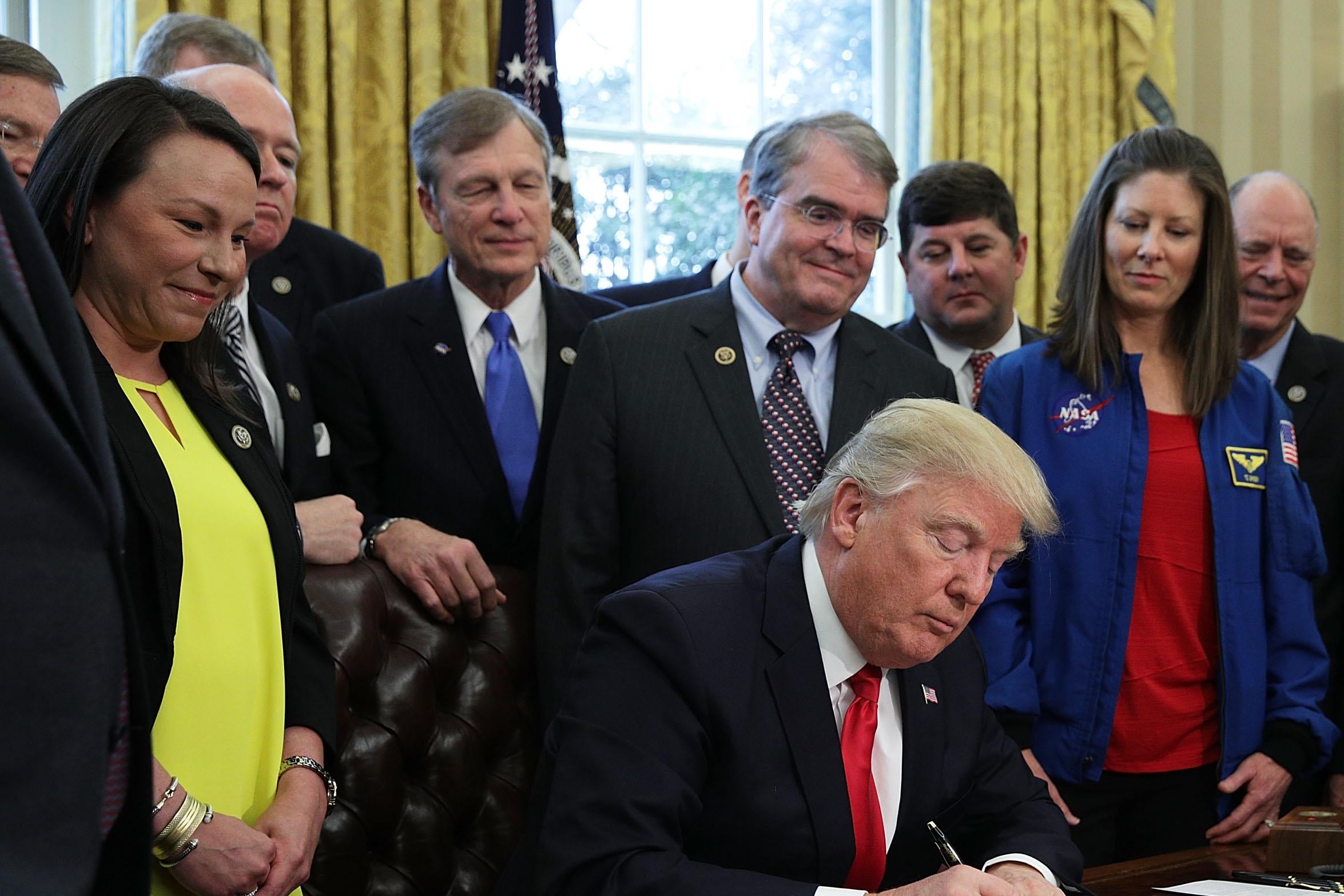Republicans in southeastern Alabama have already proven that they don’t forget when one of their own breaks with Donald Trump. The question now is whether they can forgive.
GOP voters in the state’s 2nd Congressional District will head to the polls on Tuesday for a primary runoff between Rep. Martha Roby, who once rebuked Trump for his Access Hollywood boasts about sexual assault but who has since mended fences with the president, and former Rep. Bobby Bright, a one-time Blue Dog Democrat who has rebranded himself as a proud Trump Republican.
While the contest has been mostly about Trump, it is far from the kind of referendum on the president that we saw last month in South Carolina, where Katie Arrington took down GOP Rep. Mark Sanford in a primary thanks to a major boost from the president. Sanford remained steadfast in his criticism of Trump even in the face of his primary challenge, while Roby has worked aggressively to get back into Trump’s good graces after angering the GOP base two years ago by revoking her presidential endorsement. In that way, the Alabama runoff largely follows a primary script we’ve seen often this year, whereby the leading Republican candidates compete to see who can embrace Trump and his America First agenda the most.
Roby’s efforts on that front were rewarded with a coveted Trump endorsement last month—though notably, not until after the state’s primary, in which Roby failed to clear the 50 percent threshold needed to win the nomination outright.
The GOP primary wasn’t the first time that Roby paid a political price for her criticism of Trump. After she revoked her endorsement for Trump a month before the 2016 election, her primary rival launched a late write-in campaign that attracted around 10 percent of the vote. Roby still won re-election, but with only 48 percent of the vote, roughly 20 percentage points less than she got in 2014.
Following that scare, Roby worked hard to make amends with Trump, and the White House willingly played along, allowing her to team up with Ivanka Trump on a policy project and inviting her to the White House on multiple occasions. Still, Trump’s tacit forgiveness wasn’t enough to push Roby across the primary finish line. She secured only 39 percent of the vote in June, 11 percentage points shy of the threshold she needed to avoid a runoff. Bright, meanwhile, got 28 percent and a third Trump-loving candidate got 19 percent.
Strange things can happen in low-turnout runoffs, but Roby is the favorite. Trump holds considerable sway among the GOP electorate, and his preferred candidates have prevailed more often than not in Republican primaries, particularly when he sides with a GOP establishment-type like Roby over a challenger running as a Trump-like outsider. Still, Trump’s track record picking primary winners isn’t perfect—as Luther Strange and Alabama Republicans can attest.
